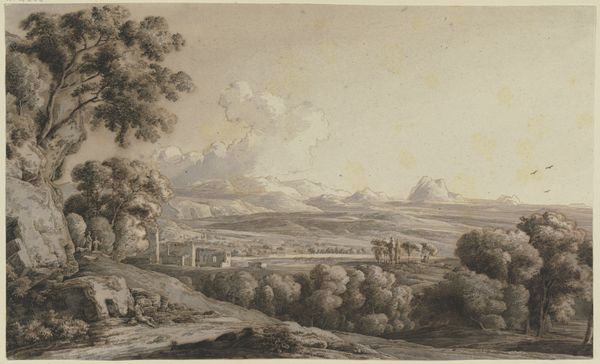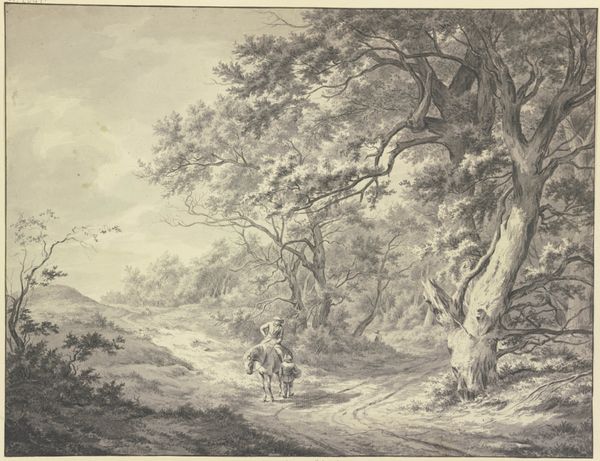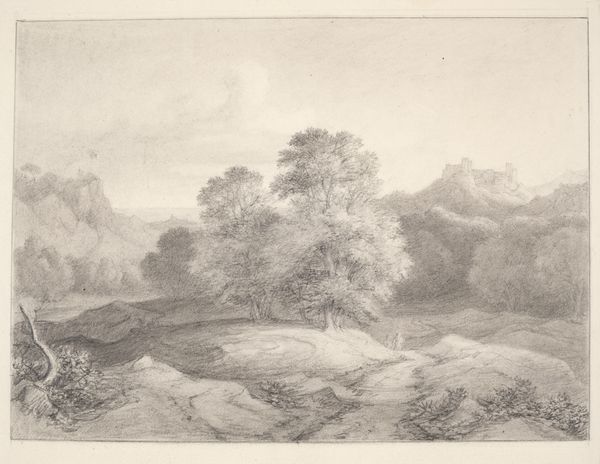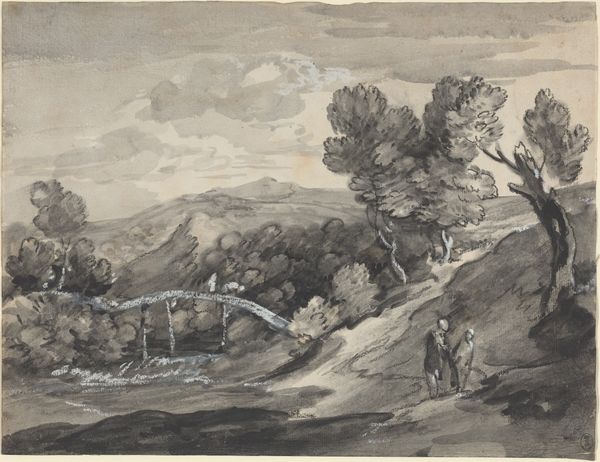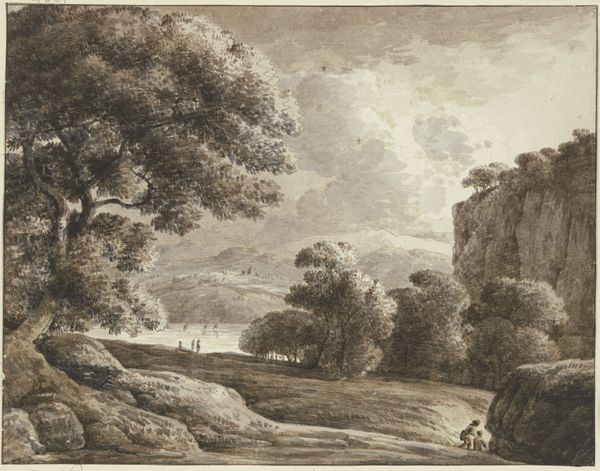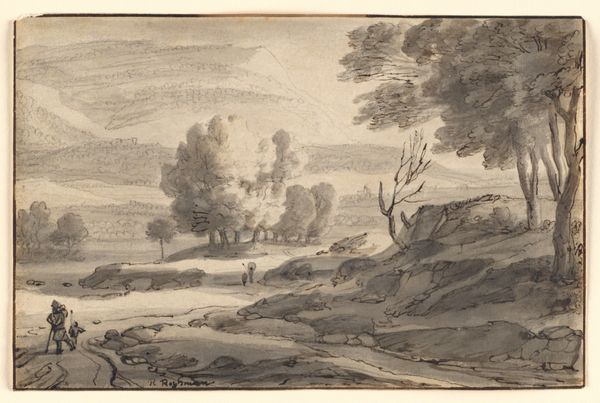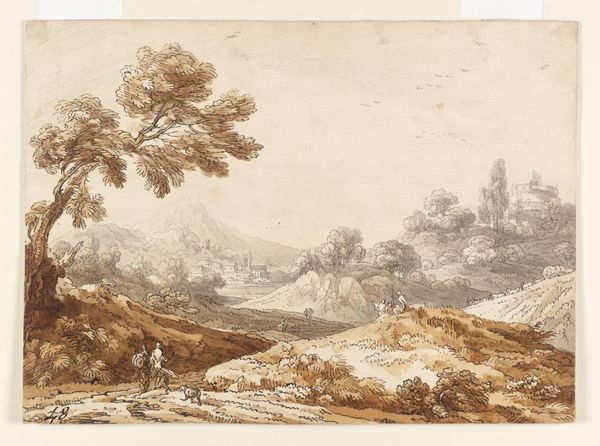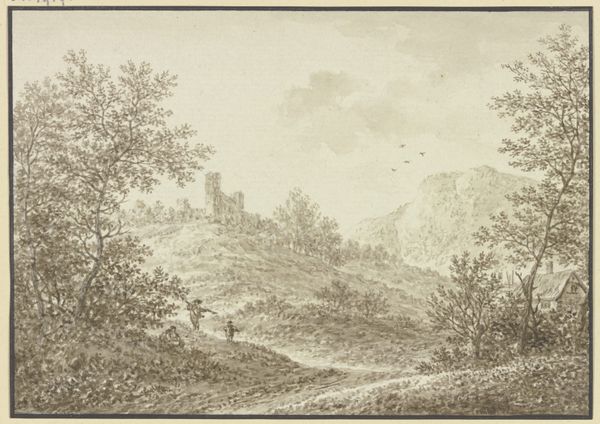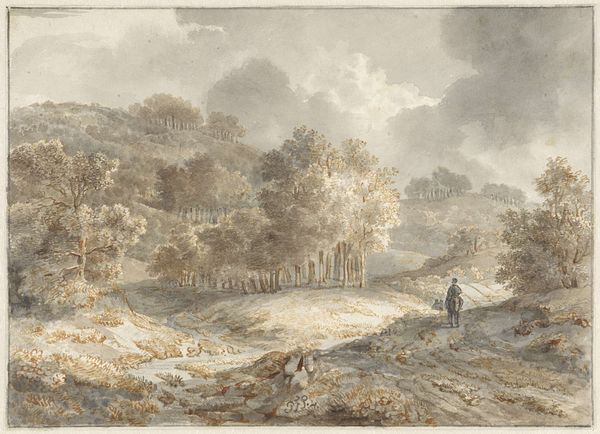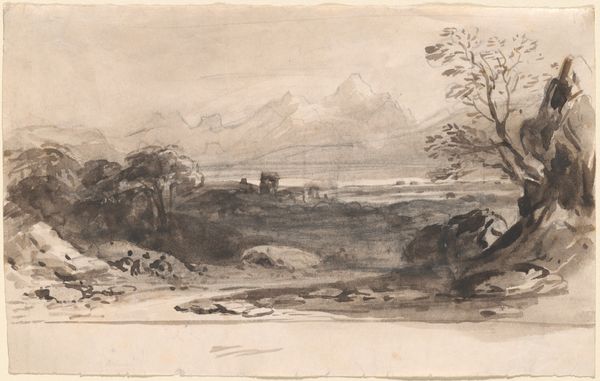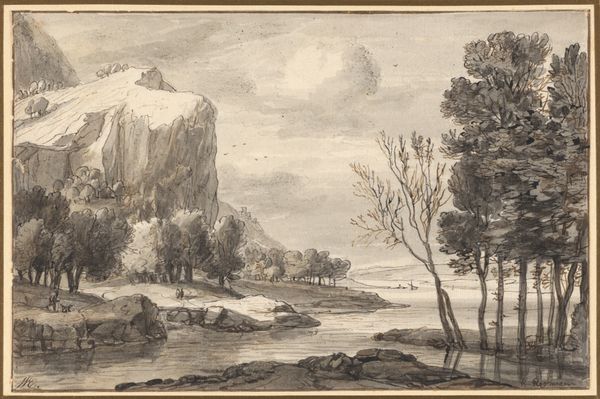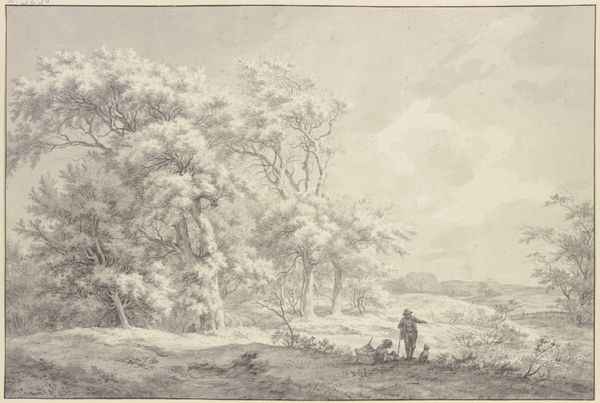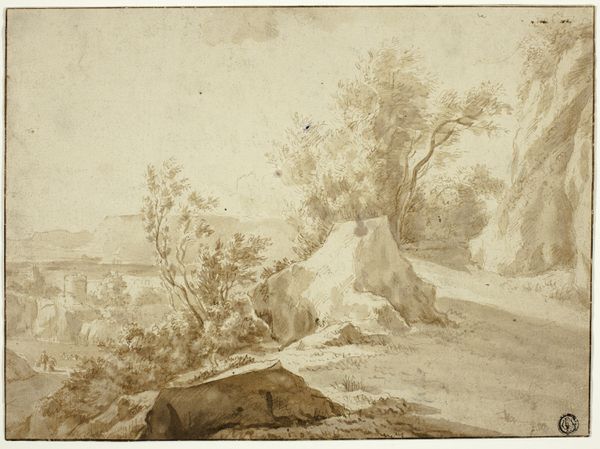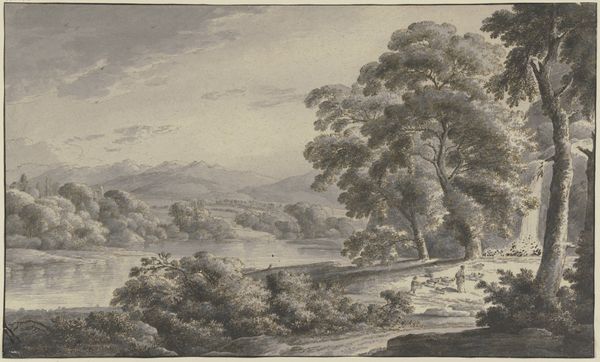
drawing, print, paper, chalk, charcoal
#
drawing
# print
#
landscape
#
charcoal drawing
#
figuration
#
paper
#
form
#
chalk
#
charcoal
Dimensions: 281 × 371 mm
Copyright: Public Domain
Curator: The subtle gradations of tone in this drawing give it an almost melancholic air. What do you make of it? Editor: Its structure speaks of pastoral longing, of humans dwarfed by an idealized landscape, a theme pervasive during periods of significant social upheaval and land enclosure. The Art Institute possesses this delicate rendering, an anonymous work, titled “Hilly Landscape with Shepherd and Flock," crafted with charcoal, chalk, and other drawing mediums on paper. Curator: Yes, the medium itself enhances that quietude, doesn’t it? The yielding, granular texture of charcoal allows for these exquisite atmospheric effects, that soft dissolving light. The use of chiaroscuro directs the eye – almost stage lighting on the shepherd and his flock. Editor: Indeed. But consider who these idylls served, for whom were these narratives constructed? Rural life was being romanticized as rural populations were losing their land and their connection to their agrarian lifestyle in favor of urbanization. Curator: I understand your position. But look at how the unknown artist has manipulated the visual elements—the careful orchestration of light and shadow—to generate depth, shaping an open vista for the shepherd who seems positioned between this flock and the looming mountain in the background. Doesn't that composition denote something about man’s place within the environment? Editor: I cannot disconnect the work from what I know about the context of this theme. This kind of subject reflects power relations prevalent when people moved from rural to urban areas and became displaced and disenfranchised, so this work acts as propaganda. I want to understand the politics, not simply the picturesque image, and perhaps, through an understanding of its original audience, expose its impact in our own historical moment. Curator: Perhaps we both seek a fuller, deeper viewing, just approaching from different perspectives. For you, it is about interrogating these idealized projections. For me, it is to perceive the formal, optical responses provoked. Editor: Maybe, if we are successful, we each arrive at similar awareness by different routes.
Comments
No comments
Be the first to comment and join the conversation on the ultimate creative platform.
